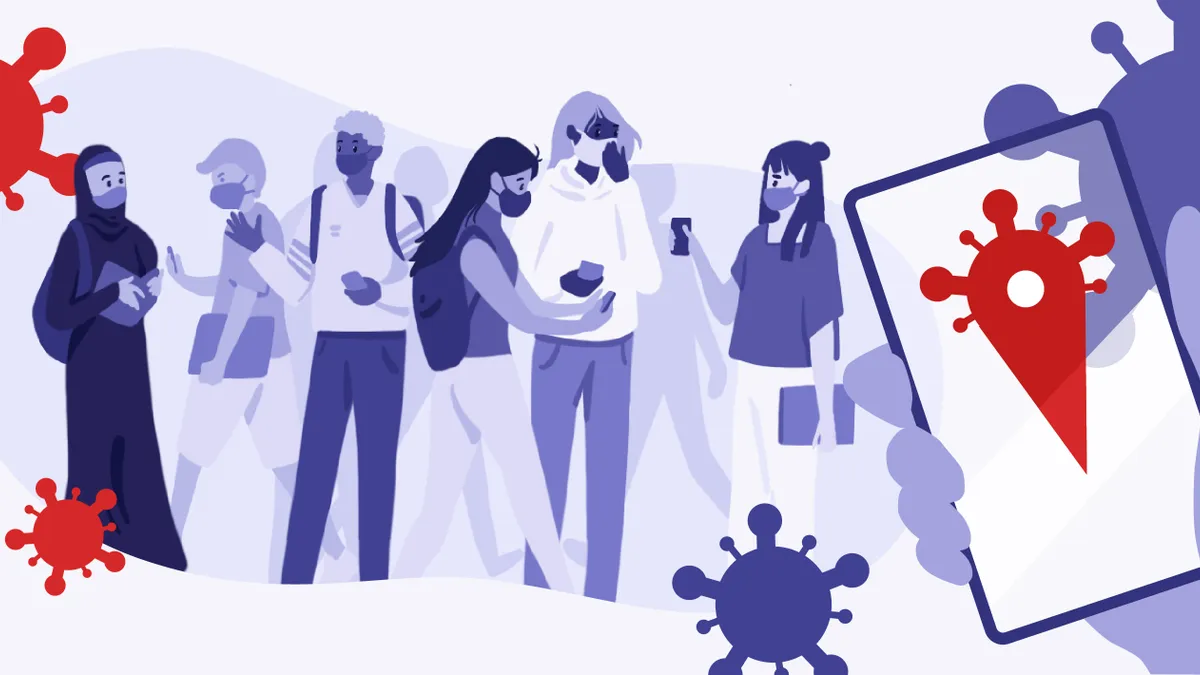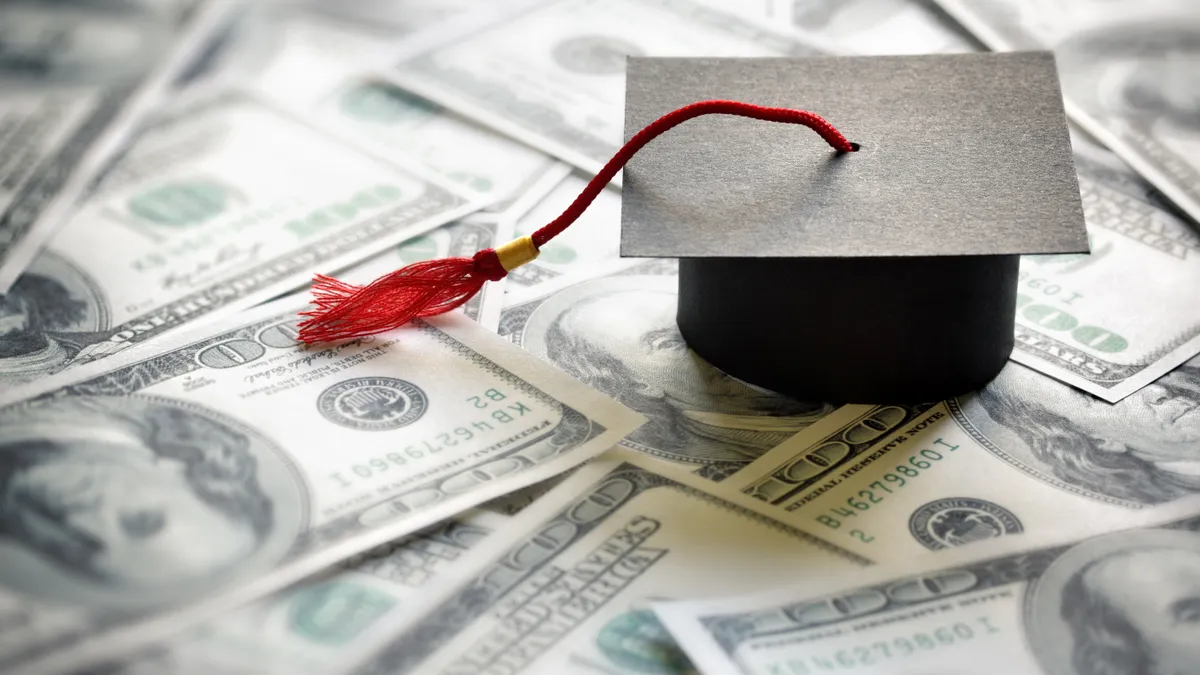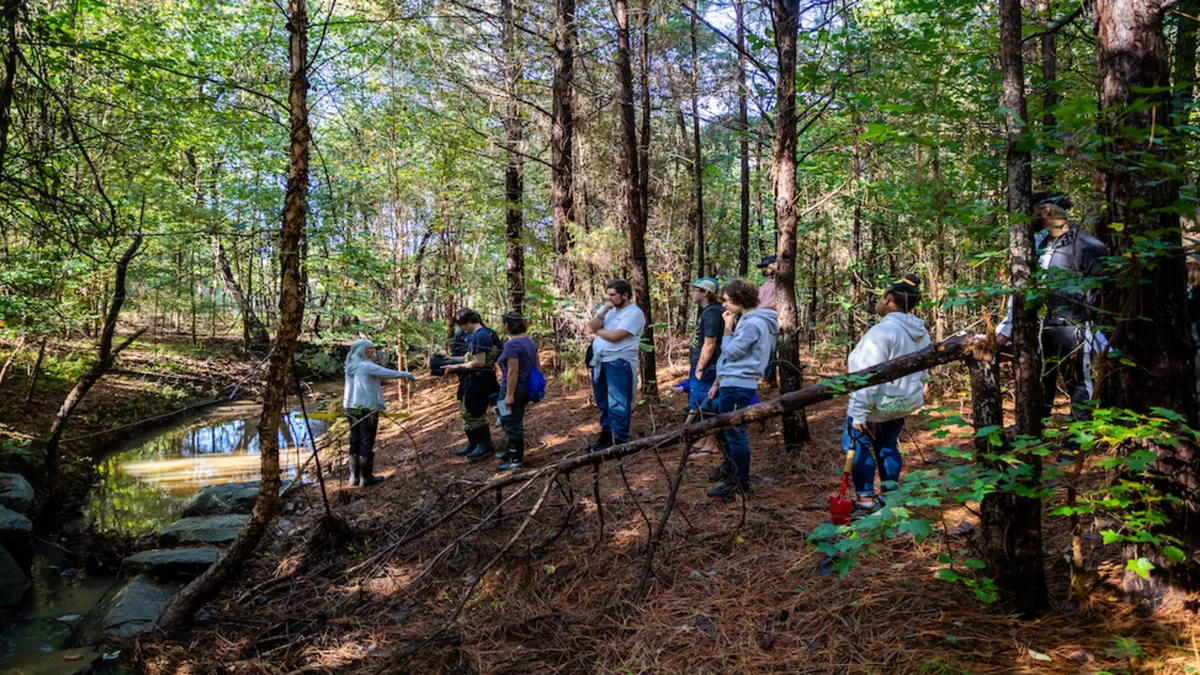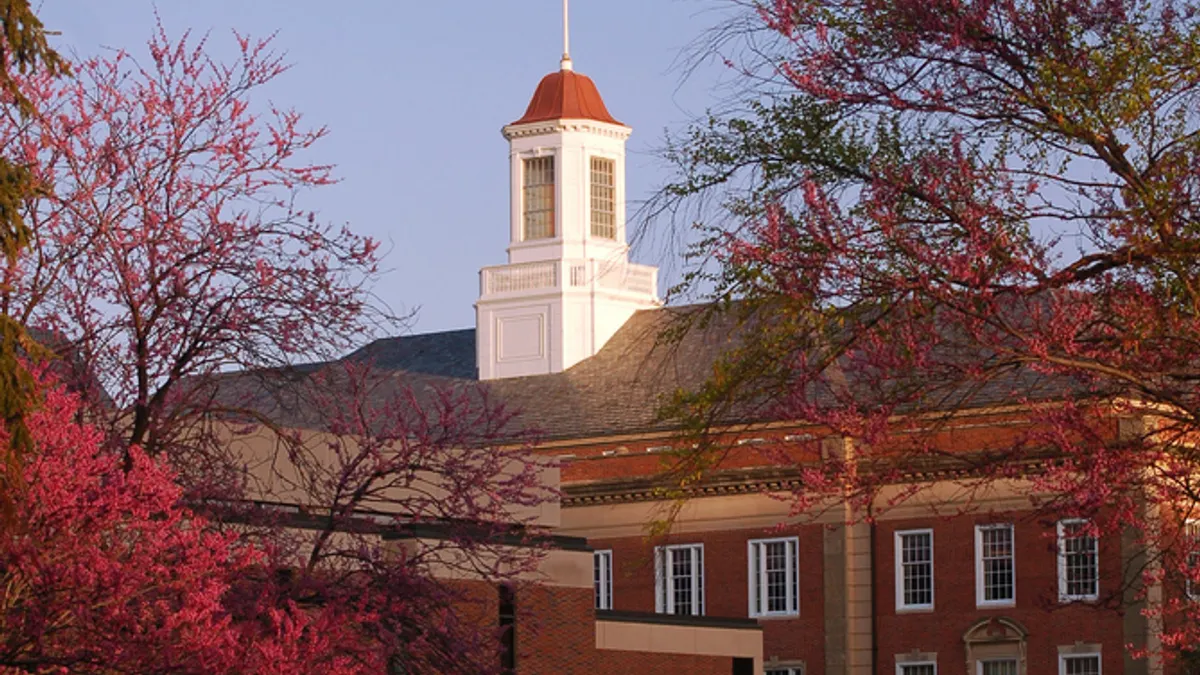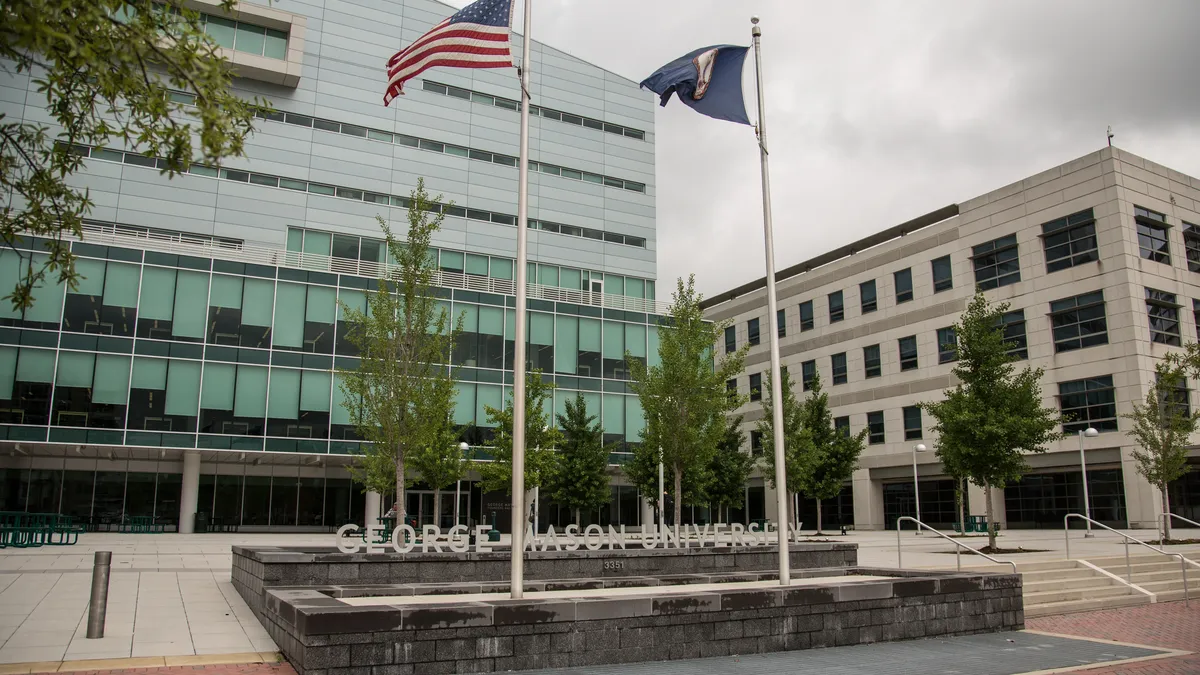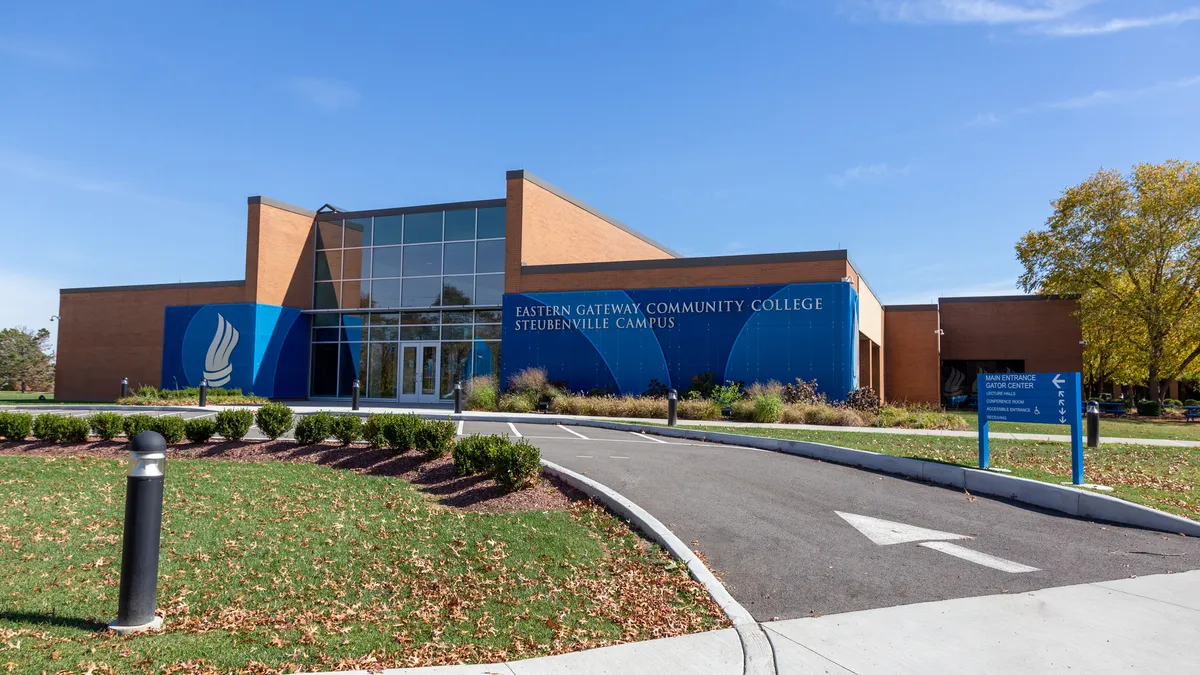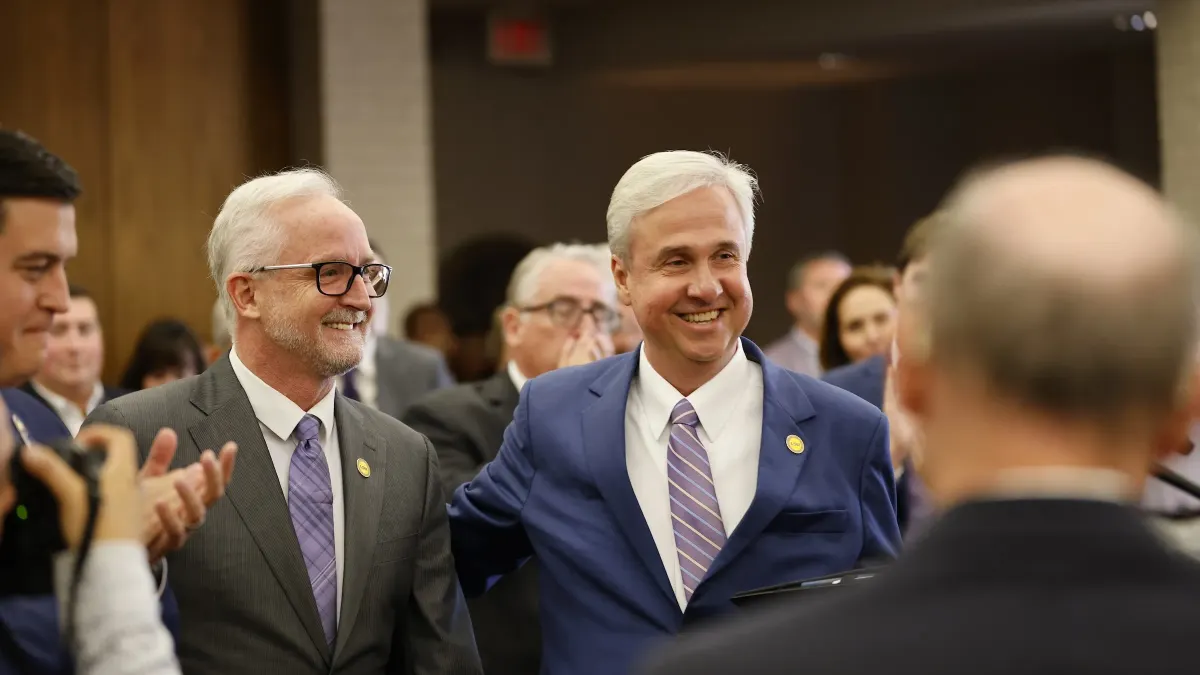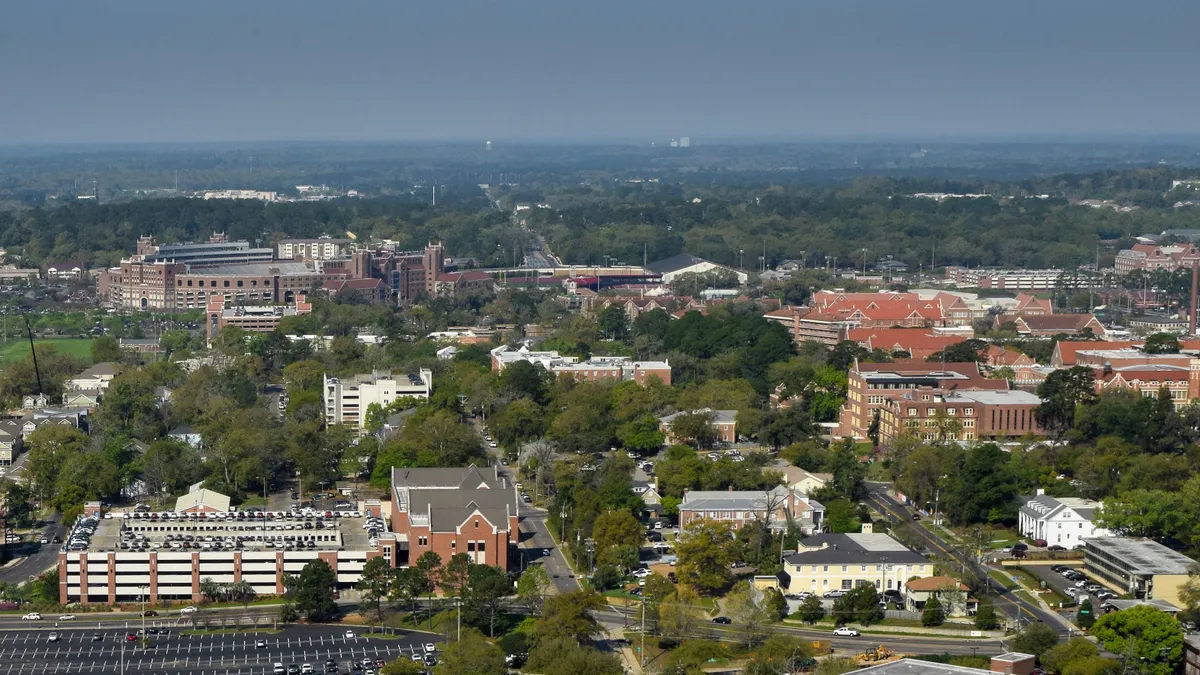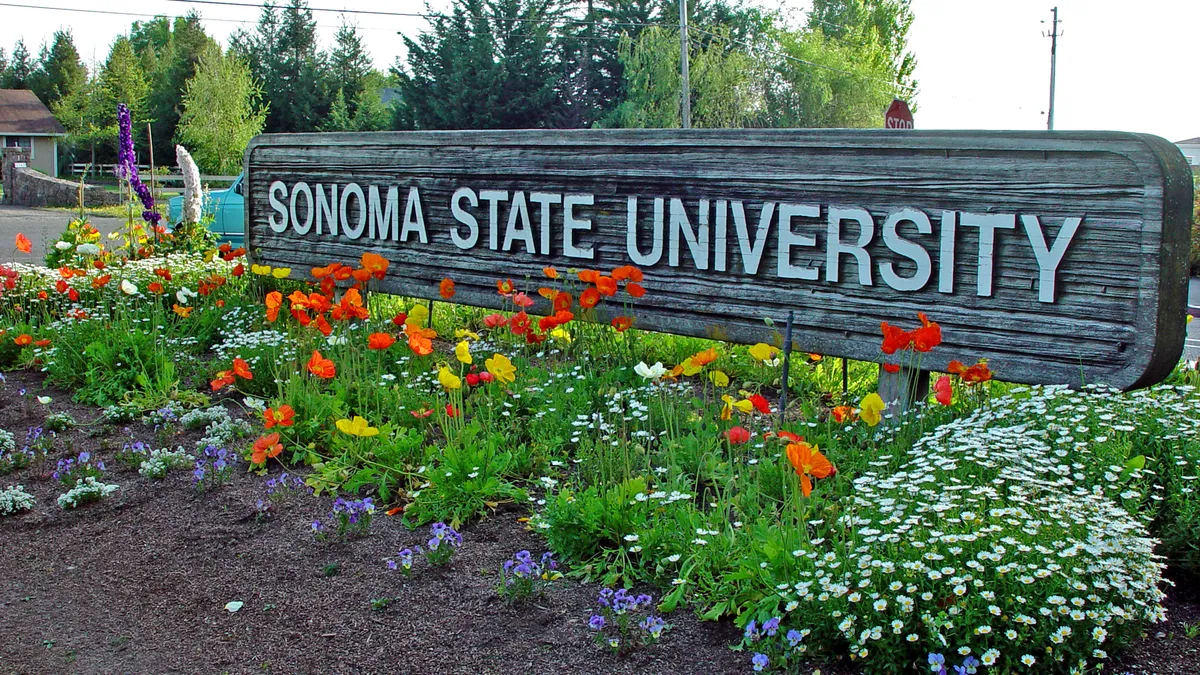Last week, representatives from the University of Alabama at Birmingham called for 20,000 participants to test a new mobile app that its researchers helped develop. It will alert them if they've recently been in contact with someone who has tested positive for the coronavirus.
After the test run ends in mid-August, state government and university officials hope Alabama residents will use the app to curb the spread of the virus.
Based on tools built by Apple and Google, the GuideSafe exposure notification app determines the proximity of two people by assessing the signal strength between their smartphones. If a user indicates they've contracted the virus, it sends alerts about potential exposure to anyone who has been within six feet of them for at least 15 minutes over the past two weeks.
Sue Feldman, a health professor at the Birmingham campus, billed the app during a press conference about the state's higher education reopening strategy as "one of the tools" it can use to fight the coronavirus. The app, as well as other parts of its reentry plan, was paid for with relief funds from the Coronavirus Aid, Relief, and Economic Security Act.
U of Alabama, which is offering a mix of virtual and in-person instruction this fall, hopes the combination of the GuideSafe app and testing up to 12,000 students for the virus each day will ensure campuses can reopen safely. Use of the contact-tracing app is voluntary, but all students and employees coming onto campus or living there will be required to complete a symptoms questionnaire at regular intervals.
The university is one of several higher education institutions using mobile apps to aid contact tracing, a process that's key to stopping the spread of infectious diseases. By identifying students and employees who've contracted the virus and those with whom they've come into contact, colleges can stop chains of transmission.
Usually this process requires trained personnel to interview people who have tested positive for the virus about the locations they've visited and who they've been around. But several companies and colleges are pitching contact-tracing apps and other technologies to help ease these efforts and reopen campuses this fall.
However, some experts caution that these tools can risk student privacy, aren't accessible to people without smartphones and could undermine manual contact-tracing efforts. Albert Cahn, executive director of the Surveillance Technology Oversight Project, contended that unproven apps can also falsely convince campus officials that they are "comprehensively and cheaply" tracking the spread of the virus.
"The problem is these technologies simply aren't capable of that sort of tracking," Cahn said. "And if they were, they would raise a whole host of civil rights and privacy concerns."
Guarding student privacy
The best contact-tracing apps voluntarily and securely store data, according to a guide from education consultancy EAB. It also recommends colleges employ apps that use Bluetooth, rather than GPS, because it doesn't track location data.
College officials tend to trust tools and apps developed by Google and Apple to protect student and employee privacy, said Nalika Vasudevan, EAB's senior director of research. And U of Alabama officials touted the new app's protections during its rollout. But in many cases, privacy has taken a back seat as companies have rushed to launch similar tools.
Two researchers from the University of Illinois-Urbana Champaign recently reviewed 50 coronavirus-related apps, about a third of which were devoted to contact tracing. Only 16 of all the apps studied indicated user data would be encrypted and made anonymous, they found.
At the University of California, Irvine, a team of researchers is hoping to put those concerns to rest by developing a web-based app that uses data the school already collects.
Instead of requiring students and employees to turn over troves of personal information, the system works by tracking the number of devices connected to the campus Wi-Fi. To avoid overcounting people, it uses machine learning techniques to determine if two or more devices are moving together, suggesting they belong to the same person.
This can help campus officials gauge whether social distancing protocols are being followed on campus, and students and employees can check the app's dashboard to avoid areas where there is overcrowding. The college can use the tool to mark areas on campus that have been linked to coronavirus cases.
"It's inherently privacy-protecting," said Nalini Venkatasubramanian, a computer science professor at UC-Irvine working on the project. "There is really no need to know who the individual is — it's more about the space."
The app has another level of service that can aid contact-tracing efforts. If students allow the system to decrypt their data, they will receive email or text alerts if they've recently visited an area linked to a coronavirus case, the researchers explained.
It will not capture students who don't log onto the Wi-Fi, though most are connected to the network when they come onto campus, Sharad Mehrotra, a computer science professor at UC-Irvine, wrote in an email. The researchers will consider encouraging them to connect to the network if they find they aren't doing so.
"The problem is these technologies simply aren't capable of that sort of tracking. And if they were, they would raise a whole host of civil rights and privacy concerns."

Albert Cahn
Executive director, Surveillance Technology Oversight Project
Many other schools, such as the U of Alabama, are looking to the tools that Google and Apple recently developed, Vasudevan said. The two technology companies are working with at least 20 U.S. states and territories, representing nearly half of the country's population, to create these apps.
But it's unclear if enough people will use them to be effective. One recent study out of Oxford University found that around 60% of a model city's population would need to use a contact-tracing app to stop an epidemic, though lower usage could still help mitigate an outbreak.
Yet in a recent poll of more than 1,000 U.S. adults, half of those with a smartphone said they "probably" or "definitely" wouldn't use a contact-tracing app created by Apple and Google that lets people anonymously report if they tested positive for the virus as well as notify them if they have been in close proximity to someone else who has. Of the sample, 13% of cellphone users don't own a smartphone, and 4% of all respondents said they don't have a cellphone at all.
It's unclear if public sentiment about such apps has changed since the poll was conducted in April. But some have been deemed failures because of their low usage rates.
In Utah, state officials recently announced they're turning off the location-tracking feature of its contact-tracing app, called Healthy Together, after only about 200 users agreed to share their location data, The Salt Lake Tribune reported.
The questionnaire method
Concerns about low usage and privacy among contact-tracing apps have led some campus officials to reconsider their options. "Even though there was a lot of interest in these apps amongst higher education institutions in (the) May/early June time frame, a lot of that interest has fizzled," Vasudevan said.
Instead, more colleges are employing apps that ask users to complete a daily symptom questionnaire before they move about campus.
Ivy.ai, a company that makes chatbots for colleges, worked with Creighton University, in Nebraska, to create a free mobile app called #CampusClear. It asks users how they feel and allows colleges to greenlight them to go to campus and enter certain buildings if they don't report any symptoms of COVID-19.
Some schools will also require students to present their phones at physical checkpoints to prove they took the survey. To allow officials to check the app at a distance, Ivy.ai included a feature that will change the background to a specific color each day once students pass the questionnaire, a method akin to the rotating colors of wristbands football stadiums use for different games.
Colleges can also match the app's database of student emails to class schedules and housing assignments in order to alert students if they visited an area linked to a coronavirus case. "It will give the first warning signs before things get out of control," said Mark McNasby, Ivy.ai's CEO and co-founder.
The app encrypts user data so only select campus officials, such as school nurses, can access it. So far, more than 240 schools have signed agreements to use the app on their campuses, McNasby said.
Terra Dotta, a company that builds software to help colleges manage their study abroad programs, partnered with Yale University's medical school and the law firm White and Williams to create an app meant to help colleges reopen campuses. The app will notify students about the school's safety policies and verify they were read, and it has an option for colleges to serve students and employees a daily symptom questionnaire.
About six institutions are piloting the app. "It's going to be hard for the institutions to really be able to get a grasp on all of this without the use of the technology," said Anthony Rotoli, Terra Dotta's CEO.
The app also has GPS tracking capabilities that can aid contact-tracing efforts, though it will be up to colleges whether they want to use that feature, Rotoli said.
Ivy.ai's McNasby, however, notes the limitations of such tools, which won't stop infected students from spreading the coronavirus if they don't have symptoms to report. It's unknown how many cases are asymptomatic, but research so far, some of which has not been peer-reviewed, suggests it's anywhere from around 10% to 70%, according to the Centers for Disease Control and Prevention.
That's why effective contact-tracing efforts also rely on robust testing and quick turnarounds on results. A recent study published in the Journal of the American Medical Association found that colleges may need to test students for the virus every two days to control campus outbreaks. The findings assume colleges use a lower-cost test that detects 70% of cases in infected people, and that they implement social distancing measures.
Yet few institutions have the resources to test as extensively as the U of Alabama, and testing turnaround times are spotty around the country. Results from tests using a nasal swab took an average of four days in the U.S. in July, but 10% of people had to wait at least 10 days for theirs, according to a recent national survey.
Stepping away from apps
Some schools are forgoing mobile apps in favor of other types of technology. This fall, Molloy College, a private institution in New York, is screening students and employees for fevers using temperature-taking tablets placed just inside the entrance of campus buildings.
Residential students will have to be screened by the devices twice daily, regardless of whether they're going to class. Residence life staff will follow up with anyone who doesn't have their temperature taken.
The seven-inch devices, which run about $2,000 apiece, use facial-recognition technology that's matched against the school's ID card system. If they detect that a residential student has a temperature of 100.4 F or higher, it will notify a health services staff member to meet them at the building's entry. Commuter students will be asked to leave campus and immediately contact a healthcare provider and the college's health services.
The tablets are part of Molloy's plan for bringing students back to campus this fall for in-person classes, though hybrid and online instruction will also be available. The school requires face coverings to be worn in all indoor spaces, rooms to be limited to half-capacity and anyone coming to campus to fill out a daily symptom questionnaire. A Molloy spokesperson did not say what consequences students will face if they don't comply with requirements to have their temperature screened or fill out the questionnaires but noted that a section addressing those issues is being added to the student handbook.
A risk of using facial-recognition technology, however, is that some software misidentifies people of color much more often than it does White people.
A+ Technology, which makes Molloy's kiosks, did not respond to Education Dive's email asking whether its technology has been tested for potential biases. But Janine Biscari, Molloy's vice president for student affairs and dean of students, said the company assured officials that the kiosks are "strong in capturing everybody regardless of skin color" and that the college will be testing them before the fall term starts.
Still other college leaders are choosing to keep campuses closed because they believe it may not be possible to safely reopen. A recent New York Times analysis linked more than 6,300 coronavirus cases and at least 14 related deaths to colleges.
But Cahn, a critic of emerging surveillance technologies, worries schools aren't thoroughly vetting technologies that purport to help them safely reopen their campuses.
"It seems like we will see many colleges taking shortcuts this fall that lead to additional student, staff and faculty death," Cahn said. "It's horrifying to put it that bluntly, but we've seen it already."


